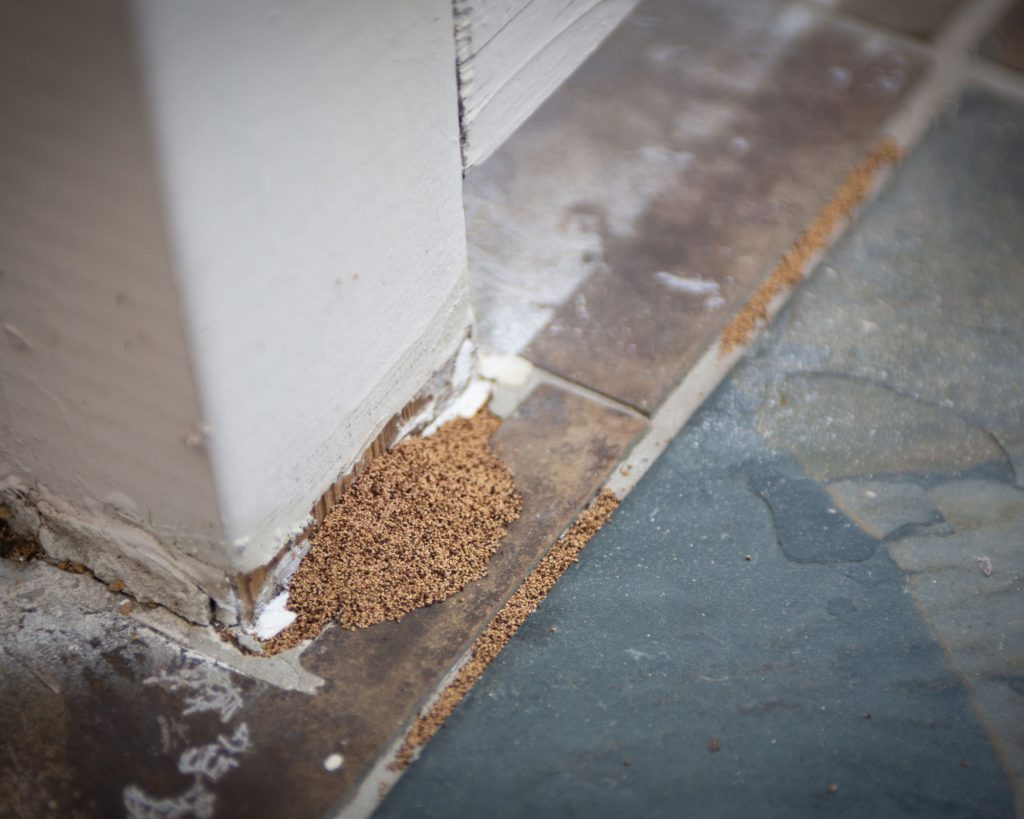Discovering termites in your ceiling drywall can be a distressing revelation, as these silent invaders can cause significant structural damage. In this comprehensive guide, we’ll delve into the intricacies of “Termites in Ceiling Drywall,” exploring the signs, causes, and effective methods to eradicate and prevent termite infestations. Learn how to protect your home from these destructive pests and ensure the longevity of your ceilings.

Decoding the Threat: Termites in Ceiling Drywall
Before delving into solutions, let’s understand the issue of termites infesting ceiling drywall. Recognizing the signs and knowing the potential causes are crucial steps in effectively addressing and preventing termite damage.
Common Signs of Termites in Ceiling Drywall
- Hollow Sounds: Tap on your ceiling, and if it produces hollow sounds, it could indicate termite damage within the drywall.
- Discarded Wings: Termites shed their wings after swarming. Finding discarded wings on the floor or windowsills is a potential sign of an infestation.
- Mud Tubes: Termites often create mud tubes for travel. Check for these tubes on walls, ceilings, or other surfaces connected to the ground.
- Visible Termite Trails: Sometimes, termites may be visible on the surface of the drywall, especially during swarming seasons.
Causes of Termites in Ceiling Drywall
- Moisture Issues: Excess moisture in and around your home can attract termites. Fix any leaks promptly and ensure proper ventilation.
- Wood-to-Ground Contact: Direct contact between wood and soil creates an entry point for termites. Maintain a gap between soil and wooden structures.
- Infested Wood Sources: If you have untreated or infested wood in or around your home, termites may be drawn to it, eventually spreading to the drywall.
Read too: Understanding and Addressing a Leaky Ceiling in Your Apartment: Navigating the Drips
Addressing the Issue: Effective Removal of Termites in Ceiling Drywall
- Professional Inspection: Hire a licensed pest control professional to conduct a thorough inspection and assess the extent of termite infestation.
- Localized Treatments: Targeted treatments such as liquid termiticides or foams may be applied directly to affected areas within the ceiling drywall.
- Termite Baiting Systems: Install baiting systems around your home to attract and eliminate termites. These systems help prevent further infestations.
- Repair and Replace: Remove and replace severely damaged drywall. Ensure that the source of the infestation is eliminated before making repairs.
Preventive Measures:
- Regular Inspections: Conduct routine inspections for signs of termites in and around your home. Early detection allows for prompt intervention.
- Termite-Resistant Materials: Consider using termite-resistant drywall or treating drywall with termite-resistant coatings during construction or renovations.
- Moisture Control: Maintain proper ventilation and address any moisture issues promptly. Termites are attracted to damp environments.
Conclusion
In conclusion, dealing with “Termites in Ceiling Drywall” requires a proactive and informed approach. By understanding the signs, causes, and effective removal methods, homeowners can protect their homes from termite damage. Regular inspections, preventive measures, and professional assistance are key components in maintaining a termite-free home.